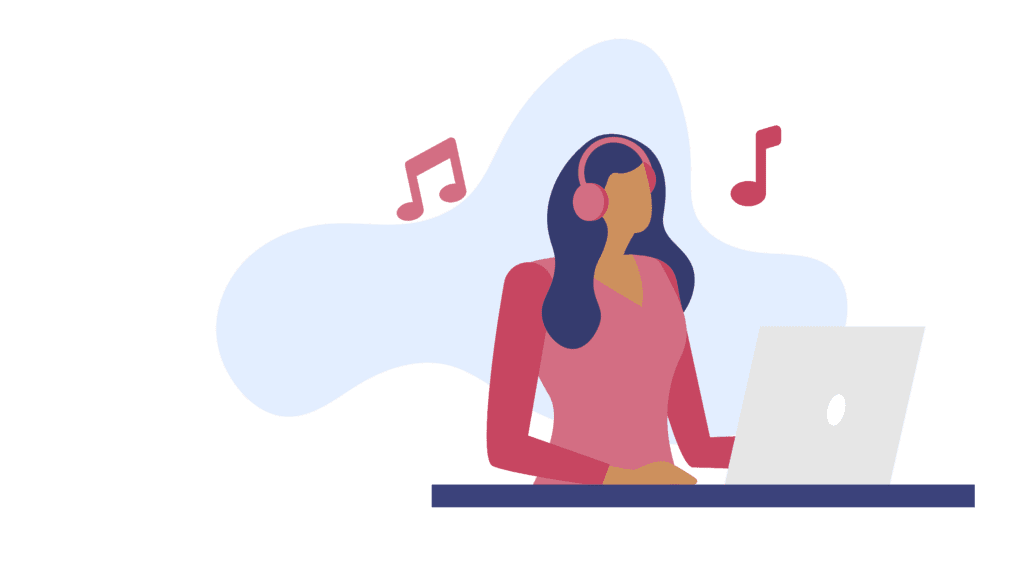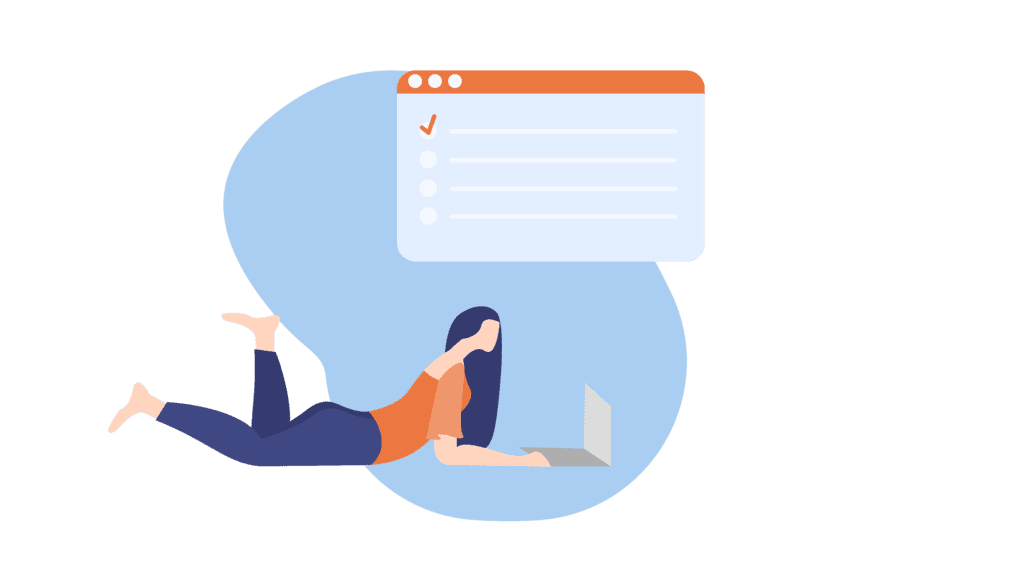
We’re a month into the stay-at-home orders, which means for many of us, we’re a month into working from home. Working remotely lends itself to distractions and temptations galore. Waking up late, not getting dressed, working from bed, etc. Even if working from home isn’t new to you, or if you’re home but not working, these tips can help boost overall productivity regardless of the situation. Here is a list of tips and habits that will boost your ability to stay productive working from home, and allow you to find a new normal in this time of anything but.
Before continuing, the Nicklaus Marketing & PR team would just like to thank all of the first responders, healthcare workers, grocery store clerks and delivery services for continuing to go to work and allowing our societies to run at the risk of their own lives and well-being. The team would also like to acknowledge anyone who may have lost their job, whether it be temporarily or permanently during this pandemic. We know it’s scary and time of unknown and uncertainty. If you are struggling during this time, we have provided links at the end of this blog post where you can reach out for help.

Create A Morning Routine
A morning routine doesn’t have to be some elaborate, scheduled out scheme. Creating a morning routine is simply about making sure we keep ourselves in the habit of taking care of our minds and bodies.
The human mind thrives on routine. While during the first week of lock-down you enjoyed being able to sleep in and answer emails from your bed, the lack of productivity can significantly effect your mood, your feeling of accomplishment and your need for normalcy.
Your morning routine can be something simple like:
- Wake up
- Make Bed
- Walk dog
- Shower
- Eat breakfast
- Get dressed
- Tidy up
- Sit down for work
We’re not saying you need to wake up at sunrise and fit in a 30 minute meditation session or a gourmet breakfast, (although if you have the time that does sound incredible.) But continuing to wake up at a particular time and make sure you’re awake and ready for the day will not only ensure a productive day, but it will keep you in the habit for when the world goes back to work.

Get a Dedicated, Upright Workspace
As mentioned earlier, working from your bed or couch is tempting— some would say, “harmless!” However, studies have shown that the human mind greatly benefits from having physically separate work/downtime spaces.
Not only do couches and beds provide little back and butt support, but working from your bed alters your downtime perspective when laying in that same bed. When work and relax spaces are combined, it can feel difficult to turn your mind off during your down time, and difficult to turn your mind on during work time.
Dedicated workspaces can be:
- One side of your dining room table
- A seat at a breakfast bar
- A desk (if you’re so lucky)
- A snack tray set up with a rolling chair
On top of having a space that allows for focus and supported posture, it’s important to keep your workspace to just that space. Any notepads, documents, laptops, chargers, etc. should all be kept to that one area. When supplies and tools begin to spill throughout your home, and you come across the stack of documents you were supposed to fax under your sheets, it’s easy to forget things, and it’s hard to turn work-mode off.

Get Ready (Just a Little)
Don’t freak out! We know this is the last thing you want to hear.
“It’s not like anyone can see how greasy my hair is on Zoom!” Believe us, we get it. But as anything else, although the temptation is there, ultimately getting ready will make you physically and mentally feel ready to take on the day! If you look good, you tend to feel good.
Don’t worry, you don’t have to wear jeans. (Anyone who’s doing that, what are you trying to prove?)
Simply:
- Shower
- Brush your teeth
- Comb your hair
- Put some form of pants on
The ritual of getting yourself ready for a day can have a positive impact on your mental state and make sure you’re in the correct frame of mind to begin your day.

Keep Your Home Tidy
This one should be pretty obvious. Now that you’re in your home almost 24/7, if your home isn’t tidy, now your workspace isn’t tidy. And if your workspace isn’t tidy, you’re bound to feel weighed down, unorganized and distracted.
We’re not saying you should be switching loads of laundry on your conference calls, or vacuuming while sending an email, but dedicate a tiny bit of time in the morning to make sure your space is clear of distractions and use whatever extra time you’re saving from not having to commute or get completely ready, and dedicate that toward improving your environment.
This same idea also circles back to having work/downtime separation. If you a stack of dishes is staring at you while you’re trying to draft a presentation, you’ll never get it done until your space is clear of that distraction.

Cut Out Distractions
If you’re a binge-watcher or a movie-maniac, you may think “this is the time I can catch up on my Netflix shows while I work!” we’re going to have to stop you right there.
Watching tv or movies while working is easily one of the biggest time and productivity wasters, possibly, ever. It can start out innocently— throwing on a movie you’ve seen 10 times already for “background noise.” But before you know it, your head is up from your computer, chin resting on your hand, and 30 minutes have gone by. TV and movies are so easy to get sucked into, but there are other options!
Instead of TV or movies, try:
- Podcasts
- Nature sounds
- Podcasts
- Work from home playlists (we’ve curated these just for you!)
- Use a distraction timer, like Forest.
Sitting in a quiet house can be deafening. When you’re in an office there’s banter and scurrying about that fills in those mental gaps that allow your mind to run off.

Make a To-Do List
This might sound pretty expected, but when separated from the people in your typical office, it’s easy for little tasks to slip your mind. When you make a new one every day, you’re able to use the previous day’s list to begin today’s!
- Start with the things that weren’t crossed off from the day before
- Check emails for tasks
- Confer with coworkers
- Leave room for random things that pop up throughout the day
Keeping a running to-do list also allows you to easily track what tasks you’ve completed throughout the day. Some companies utilize a project management system, but supervisors may ask for a list of completed tasks at the end of the day. If you keep a to-do list and cross off things as you go, you already have a list of completed tasks at 5 o’clock!
And as if that weren’t enough, there’s nothing like the feeling of ticking something off your list.

Take Breaks
Taking breaks is essential to prevent burnout. It’s easy to become engulfed in your work when working remotely. Your work is home with you, at all times. And especially now, there’s nowhere to go, so it feels like there’s no excuse why you couldn’t do something. However, it is clinically proven that the human mind needs to step away from a task every now and then. Roughly once an hour, stand up for at least 5 minutes. If you were in the office you’d be running to the bathroom, getting some water, or walking over to an office to speak to someone. Just because you’re coworkers aren’t there, doesn’t mean you have to stay glued to your seat.
You can take a break by:
- Taking a walk
- Watering your plants
- Make yourself something to eat or drink
- Text back that friend
- Swap out laundry
- Make a Quarantine Cocktail (We made these just for you too! Talk about full-service.)
The possibilities are endless! But getting outside or getting some human interaction is the best way to refresh your mind.
“Eistein came up with the pythagorean theorem after taking a nap!” A classic line we use in the office.


